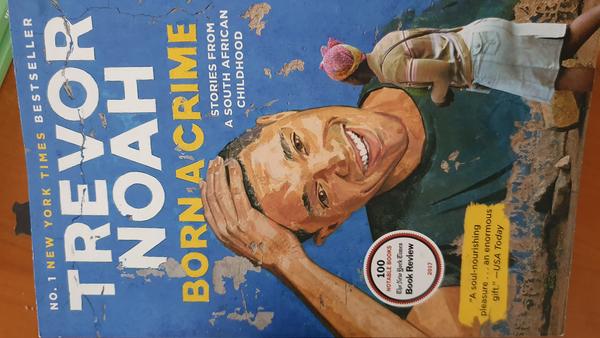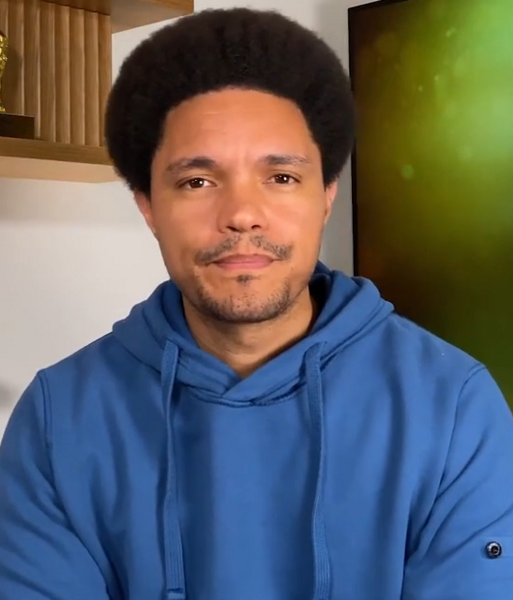Books - Read and Enjoyed

Born A Crime
Stories from a South African Childhood
Trevor Noah
One World, New York, 2016
Trevor Noah was born in 1984 in Johannesburg, South Africa, son to a Xhosa mother and Swiss father. At that time this was a criminal offense because of the Immorality Act of 1927, which was written to
prohibit illicit carnal intercourse between Europeans and natives
and other acts in relation thereto.
(p VII)
Hence the title of the book which describes Trevor Noah’s childhood and youth in Johannesburg. His mother was classified as black, his father as white and he himself as colored, which shaped his entire life. Because a relationship between a white and a black woman was illegal, his parents could not live together and Trevor could visit his father only in secret. He was an outsider in most schools he attended and most environments he lived because he was neither black nor white and did not identify as colored.
The odds of a colored kid growing up in the 1980s and 1990s in the suburbs of Johannesburg were poor because of routine violence, a deeply unjust system, and an almost complete absence of opportunities. However, Trevor had the privilege of an exceptional, fearless, smart and skilled mother that managed to allow Trevor to develop into a decent, sensible, and thoughtful person, against all odds. Despite being disadvantaged in every respect as black, as woman, as single mother, as poor, she navigated the system and carved out a decent life trajectory for herself and her children.
The book is not only very interesting in describing apartheid South Africa from the perspective of a colored kid, it is highly entertaining due to is vivid language. The events and stories reflect a very challenging environment, sometimes threading and dangerous, often surprising and unexpected, and always exciting. Never is Trevor Noah simplifying, never falling in traps of cliches, but he is always thoughtfully reflecting the wider context and always considering the historic reasons and the contradicting facets of the acting characters.

I was, for instance, not aware that in South Africa there are parents giving names like “Hitler” or “Mussolini” to their kids. Trevor Noah explains how this happens. For a time Trevor was performing as DJ with a group of dancers, and their best dancer was named Hitler.
Hitler, although an unusual name, is not unheard-of in South Africa.
Part of it has to do with the way a lot of black people pick names. Black
people choose their traditional names with great care; those are
names that have deeply personal meanings. But from colonial times
through the days of apartheid, black people in South Africa were
required to have an English or European name as well - a name that
white people could pronounce, basically. So you had your English
name, your traditional name, and your last name: Patricia
Nombuiselo Noah.
Nine times out of ten, your European name was chosen at
random, plucked from the Bible or taken from a Hollywood celebrity
or a famous politician in the news. I know guys named after Mussolini
and Napoleon. And, of course, Hitler.
Westerners are shocked and confused by that, but really it’s a case
of the West reaping what it has sown. The colonial powers carved up
Africa, put the black man to work, and did not properly educate him.
White people don’t talk to black people. So why would black people
know what’s going on in the white man’s world? Because of that, many
black people in South Africa don’t really know who Hitler was. My
own grandfather thought “a hitler” was a kind of army tank that was
helping the Germans win the war. Because that’s what he took from
what he heard on the news. For many black South Africans, the story of
the war was that there was someone called Hitler and he was the reason
the Allies were losing the war. This Hitler was so powerful that at some
point black people had to go help white people fight against him -
and if the white man has to stoop to ask the black man for help fighting
someone, that someone must be the toughest guy of all time. So if you
want your dog to be tough, you name your dog Hitler. If you want
your kid to be tough, you name your kid Hitler. There is a good
chance you've got an uncle named Hitler. It's just a thing.
(p 194)
There is also this to consider. The name Hitler does not offend black South African because Hitler is not the worst thing that black South African can imaging. Every country thinks their history is the most important, and that is especially true in the West. But if black South Africans could go back in time and kill one person, Cecil Rhodes would come up before Hitler. If people in the Congo could go back in time and kill one person, Belgium’s King Leopold would come way before Hitler. If Native Americans could go back in time and kill one person, it would probably be Christoph Columbus or Andrew Jackson.
(p 195)
So in Europe and in America, yes, Hitler is the Greatest Madman in History. In Africa he’s just another strongman from the history books. In all my time hanging out with Hitler, I never once asked myself, “Why is his name Hitler?”. His name was Hitler because his mom named him Hitler.
(p 196)
So for the group and for most of their audience, the name was not an issue and not a topic of discussion. Only when they where asked to perform at a Jewish school, it ended up in disaster.
The book is full with interesting observations and thoughtful reflections. More than that it is a touching story of a brave mother and her sensible kid navigating a complex, unfair and challenging society.
(AJ January 2023)
